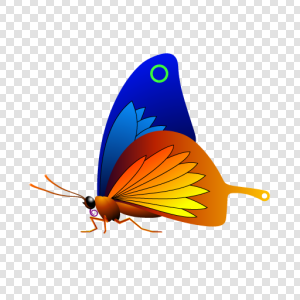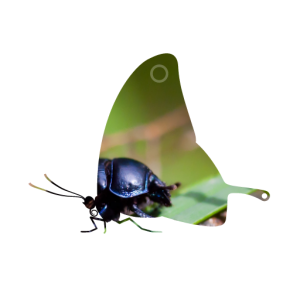OpacityMask QML Type
Masks the source item with another item. More...
| Import Statement: | import QtGraphicalEffects 1.0 |
| Since: | QtGraphicalEffects 1.0 |
| Inherits: |
Properties
- cached : bool
- maskSource : variant
- source : variant
Detailed Description
| Source | MaskSource | Effect applied |
|---|---|---|
|
|
|
Example
The following example shows how to apply the effect.
import QtQuick 2.0 import QtGraphicalEffects 1.0 Item { width: 300 height: 300 Image { id: bug source: "images/bug.jpg" sourceSize: Qt.size(parent.width, parent.height) smooth: true visible: false } Image { id: mask source: "images/butterfly.png" sourceSize: Qt.size(parent.width, parent.height) smooth: true visible: false } OpacityMask { anchors.fill: bug source: bug maskSource: mask } }
Property Documentation
This property allows the effect output pixels to be cached in order to improve the rendering performance.
Every time the source or effect properties are changed, the pixels in the cache must be updated. Memory consumption is increased, because an extra buffer of memory is required for storing the effect output.
It is recommended to disable the cache when the source or the effect properties are animated.
By default, the property is set to false.
Note: It is not supported to let the effect include itself, for instance by setting maskSource to the effect's parent.
maskSource : variant |
This property defines the item that is going to be used as the mask. The mask item gets rendered into an intermediate pixel buffer and the alpha values from the result are used to determine the source item's pixels visibility in the display.
| Original | Mask | Effect applied |
|---|---|---|
|
|
|
source : variant |
This property defines the source item that is going to be masked.
Note: It is not supported to let the effect include itself, for instance by setting source to the effect's parent.
© 2015 The Qt Company Ltd. Documentation contributions included herein are the copyrights of their respective owners. The documentation provided herein is licensed under the terms of the GNU Free Documentation License version 1.3 as published by the Free Software Foundation. Qt and respective logos are trademarks of The Qt Company Ltd in Finland and/or other countries worldwide. All other trademarks are property of their respective owners.



